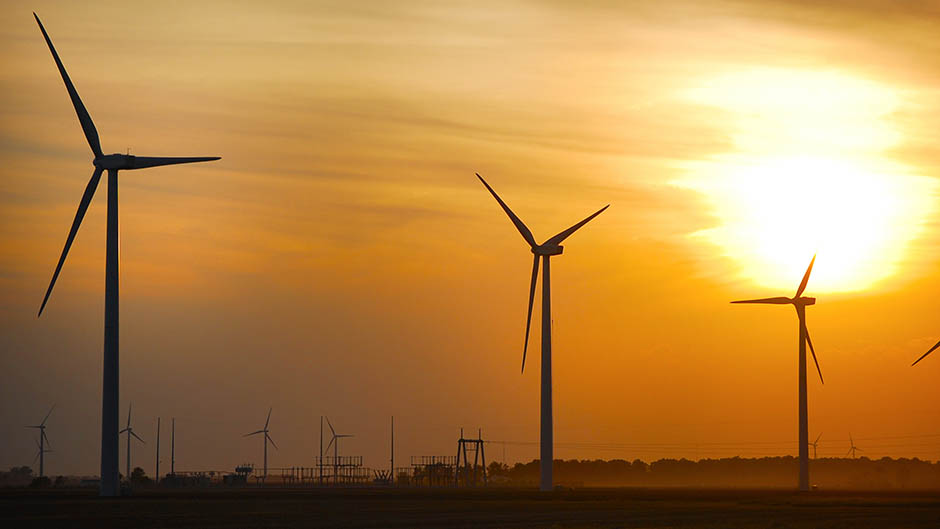Inaugural sustainability lecture series will explore the role of business in climate change solutions
Miami Herbert News, 10-20-2021

Starting Oct. 27, leaders in sustainable business will join Ioannis Ioannou, visiting associate professor of management, as he co-hosts alongside other Miami Herbert faculty “Beyond COP26: What Businesses Must Do.” The three-part virtual lecture series will consist of noontime fireside chats aimed at keeping the University of Miami community at the forefront of the climate change conversation as the 26th United Nations Climate Change Conference (COP26) approaches in November. World leaders will meet in Glasgow, Scotland for the nearly two-week conference to discuss goals for an environmentally minded and sustainable future.
“The world has set high expectations for COP26. Major governmental leaders, including those of countries considered the largest polluters, are expected to (hopefully) announce their renewed commitments and the extent to which they will work to decarbonize the global economy and reduce greenhouse gas emissions,” Ioannou explains.
As a precursor to the conference, the new lecture series will explore the role of business in establishing a marketplace that may align with ecological goals.
“A business organization is essentially the most productive and innovative unit of the modern economy,” the professor of management says. “Therefore, getting businesses to become more sustainable and more inclusive will give us a fair chance, as a global society, to build a more sustainable future, and to maintain an economic and planetary system within which current and future generations can thrive in the longer-term.”
He points out that the institution of business has the potential to function as “a big problem solver,” as some companies, such as Unilever, Tesla, Impossible Foods and Oatly, already actively reinvent products or offer green alternatives. Meanwhile, companies that have not yet proactively positioned themselves in this new competitive arena begin to recognize the need to reinvent or update their products or their very business models, strategy and operations in a way that meets a more environmentally and socially aware business landscape. For instance, as some cities around the world consider banning fossil fuels, automakers that have not yet invested in fully electric vehicles may face serious challenges. In this manner, environmental issues may stimulate the very bedrock of business, which lies in recognizing opportunities and stirring innovation.
“It’s not just about reducing the harm that has been done in the past,” Ioannou states. “It is also about rethinking the future.”
Impacts have extended to the finance sector. Investors increasingly demand that the firms in which they have ownership implement sustainability initiatives into business operations. The trend has led to ESG (environmental, social, and governance) investing, an outlook that integrates a firm’s financial results with its environmental and social effects when making investment decisions. Similarly, accountants increasingly work towards developing reporting frameworks that disclose not only financial information but also on sustainability markers.
Yet Ioannou emphasizes that all societal players, including collective societies, institutions, regulators and governments, NGOs and individuals, must take responsibility in behaviors and consumption habits to help achieve a temperature goal of 1.5 degrees Celsius and cultivate a viable ecosystem.
“Collaboration among all societal actors is absolutely essential,” he says. “Everyone has a very important role to play on the road towards a sustainable future. And rather than looking at the climate crisis in adversarial terms, we need to approach the issue collaboratively, as a global society. The climate crisis does not recognize national boundaries; it’s everyone’s problem and it’s a generational challenge.”
Business leaders must hence steer companies through complex and multi-dimensional demands and expectations from their stakeholders, including their employees, their customers, their local communities, their investors, the regulators and society at large. Against this backdrop, speakers of the upcoming lecture series will present their views on the extent of the challenge and on how their own firms may help mitigate environmental pressures.
Guest speakers will include:
- October 27: President of Asset Management, UBS Suni Harford, listed among the most powerful women in finance by American Banker magazine. Register here.
- November 9: Procter & Gamble Chief Sustainability Officer Virginie Helias, who has successfully embedded environmentally-minded practices within the business models of the multibillion-dollar company. Register here.
- December 8: Apple Vice President of Environment, Policy, and Social Initiatives Lisa Jackson, who also served as administrator of the Environmental Protection Agency during the Obama administration. Register here.
The corporate leaders represent a diversity of industries to allow for purposeful talks and various perspectives leading into COP26 and beyond.
The lecture series will also serve to precede Miami Herbert’s flagship sustainability event, the Chief Sustainability Officer Summit and Symposium, to be held in March. Today the premier event of its kind in South Florida, the summit brings together senior sustainability executives, policymakers, and scholars for discussions on wide-ranging topics to advance thought leadership for ecological wellbeing. Through these initiatives, in addition to the Master in Sustainable Business program, Miami Herbert remains positioned as an academic community invested in contributing to and furthering the conversation on global sustainability efforts.